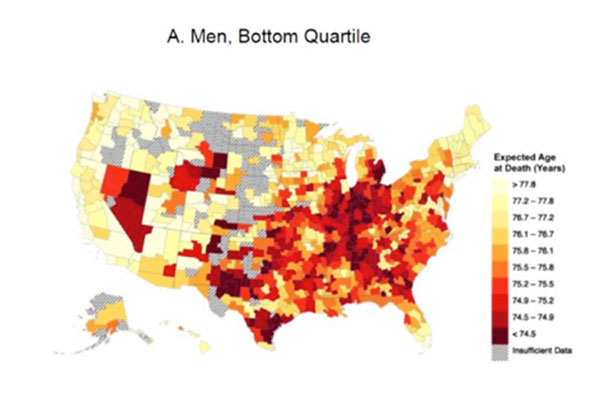Zardnaar
Deity
So I've been watching videos about poverty overseas. Sometimes documentary type shows sometimes youtubers. I try and avoid the poverty porn type youtubers.
Eg here's one UK.
Appalachia
West Virginia is really pretty.
Such places don't really exist here in NZ. We have poorer socio economic areas but I haven't seen anything like that.
20+odd years ago I would travel to rural areas to work.
In some of the interviews what people are getting on welfare is about a third of our base rates even with currency conversion. Student gets around 125pounds+ Pensioner base rate is 200+ pounds (weekly).
The worst I've seen are the Maori areas in the north island and it's still better than some of these videos. That includes South Auckland stereotypical poor brown area.
Our small towns aren't collapsing generally the closest was late 80s and 90s. Quite a few are growing (my home town 12k to 14k looks a lot better than 30 years ago)
Recurring theme seems to be mono industry that's collapsed. Most of our towns are farming town with maybe a side helping of tourism. They haven't collapsed people gotta eat.
I live in our poorest city. South Island is poorer on paper but scenery is prettier and a bit more civic pride in the towns idk. More tourism perhaps? Our really rough areas are things like a single street might approach those levels. A poor suburb just looks a bit run down not boarded up and burnt out buildings.
We don't really have ghettos or estates they never really built high density housing and dispersed social housing through the suburbs. Most houses are free standing as apartments culturally never caught on to an great extent.
These countries are also richer with better developed economies. We never diversified to much from agriculture (low productivity). The government never cut social spending as such (failing to increase spending however).
Not perfect we have food banks as well, housing is a huge issue. I've never really felt threatened being drunk in lower socio economic areas at night for example.
Eg here's one UK.
Appalachia
West Virginia is really pretty.
Such places don't really exist here in NZ. We have poorer socio economic areas but I haven't seen anything like that.
20+odd years ago I would travel to rural areas to work.
In some of the interviews what people are getting on welfare is about a third of our base rates even with currency conversion. Student gets around 125pounds+ Pensioner base rate is 200+ pounds (weekly).
The worst I've seen are the Maori areas in the north island and it's still better than some of these videos. That includes South Auckland stereotypical poor brown area.
Our small towns aren't collapsing generally the closest was late 80s and 90s. Quite a few are growing (my home town 12k to 14k looks a lot better than 30 years ago)
Recurring theme seems to be mono industry that's collapsed. Most of our towns are farming town with maybe a side helping of tourism. They haven't collapsed people gotta eat.
I live in our poorest city. South Island is poorer on paper but scenery is prettier and a bit more civic pride in the towns idk. More tourism perhaps? Our really rough areas are things like a single street might approach those levels. A poor suburb just looks a bit run down not boarded up and burnt out buildings.
We don't really have ghettos or estates they never really built high density housing and dispersed social housing through the suburbs. Most houses are free standing as apartments culturally never caught on to an great extent.
These countries are also richer with better developed economies. We never diversified to much from agriculture (low productivity). The government never cut social spending as such (failing to increase spending however).
Not perfect we have food banks as well, housing is a huge issue. I've never really felt threatened being drunk in lower socio economic areas at night for example.
Last edited:




